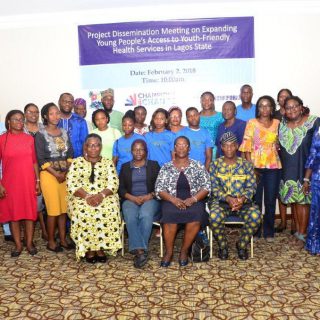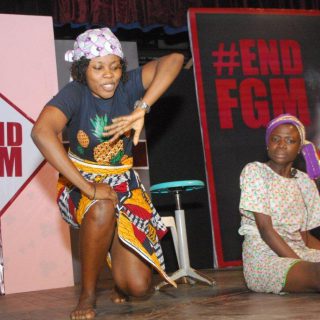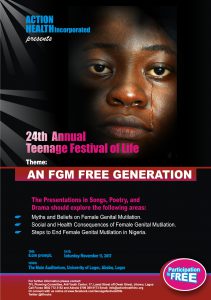On April 2, 1998, Nigeria joined other countries of the world to commemorate the World Health Day. It was an event that drew people from different walks of life to the National Centre for Women Development in Abuja, venue of the occasion.
The theme of this year’s celebration was “Safe Motherhood.” The event also coincided with the launching of a Regional Reproductive Health Strategy, which was followed by an exhibition of reproductive health materials.
In her opening address, the chairperson of the occasion, Mrs. Maryam Abacha noted that “in the past 50 years, the including Nigeria, has experienced tremendous gains in health care delivery. Prevention of several diseases has greatly reduced the rate of childhood mortality worldwide and people are now living much longer than before. There has also been a lot of progress in preventable diseases control, as well as a worldwide decline in the impact of communicable diseases.
However, She asserted that despite this commendable improvements in health care delivery system, maternal death rates are still prevalent.” These deaths, she said, results from complications associated with pregnancy or delivery or from post-natal infections.
Mrs. Abacha identified Female Genital Mutilation (FGM) as one of the factors responsible for maternal mortality in Nigeria.
According to her, Female Genital Mutilation is a disheartening cultural practice that is visited on the girl child in certain parts of this country. Female Circumcision as it is popularly known is a deliberate psychological, social and sexual damage to female genitals which undoubtedly inflicts an everlasting social trauma on the victim.
She asserted: “The anatomic and psychological makeup of a woman, I believe, is so sacred and it is absolutely illegal before God and man for anybody to tamper with such a divine perfection. No one has the right to mutilate any part of the female make-up unless for some unavoidable medical reasons.”
She declared that “female circumcision is medically, scientifically and spiritually unreasonable, selfish and illogical. For whatever purpose it is done, it does not solve the interest of the woman or her sexual disposition.
She also appealed to all heads of families in the country to resist all cultural temptations, which forces parents to circumcise their children thereby debasing the dignity of womanhood and indeed mankind. Finally, she made a call for Nigeria’s adoption of the resolution by the United Nations Organisation banning FGM worldwide, asking the Federal Government to establish a law which provides stiff penalties for the perpetrators of FGM. “All harmful cultural practices must be abandoned as we progressively approach the next millennium,” she declared.
What is FGM?
FGM according to the World Health Organization (WHO) definition comprises all procedures involving partial or total removal of the external female genitalia or other injury to female organs. The WHO classification recognizes three degrees of severity of FGM:
Type I
Also known as Circumcision or Clitoridectomy. This is the removal of the prepuce (skin covering the clitoris) without removal of part or the entire clitoris.
Type II
Also known as Excision. This is the removal. This is the removal of the clitoris with part or total removal of the labia minora (inner lips of the vulva).
Type III
Also known as infibulation. This is the removal of the clitoris, some or all of the labia minora and incisions on the labia majora (outer vaginal) to create raw surfaces which are either stitched together or kept together until they seal to cover the urethra and most of the vaginal opening.
Another category which is unclassified includes among other practices covered by primary definition of FGM: piercing or cutting into the clitoris and /or labia; scraping of tissue around the vaginal entrance and/or cutting of the vagina; and introduction of substances or herbs into the vagina with the aim of tightening it.
Types I and II are generally more common and found mainly among the Yorubas in the west and Ibibios in the East. Type III can be found among the Igbos in Imo state and girls from Edo and Delta States. The word infibulation comes from Latin ‘fibula’ means to ‘clasp’ (hold together). It was used by Romans to prevent their slaves from having sexual intercourse as pregnancy interfered with their work. It is generally practiced among Hausa (Moslem) in the North. Gishri cuts (cuts into the front and back walls of the vagina) also practiced among Hausas is an example of the unclassified type.







You must be logged in to post a comment.